In December 2023, my wife made the wise decision to stop trying to drive a 22-year-old BMW 40,000 miles a year, and instead bought a Toyota for that task. She chose a 2012 Scion iQ for its combination of cutesy weirdness and Toyota reliability. We have driven this car more than 56,000 miles since then, and some bizarre issues have cropped up. The most annoying among them is the fact that the car keeps bricking itself (possibly not its fault — possibly because of a modification), and nobody seems to have a concrete explanation for why.
One of the perks of working from home is that I don’t need to have a “daily driver.” I basically never drive anywhere unless it’s for fun, for an appointment, or to visit friends and family. Because of this, I probably drive my own vehicles no more than maybe 5,000 miles a year, and the vast majority of those miles are put onto something like a single motorcycle for fun weekend rides. Thus, I own basically nothing but cars that were either known for unreliability or would be impractical for a road warrior. People are always surprised when they find that I don’t own a single “normal” car, but that’s the catch: I never have to depend on my cars for anything too serious! If one of my cars breaks down on the road, I can also bodge them back together enough to get back home.
It’s the exact opposite for Sheryl. She is in her car six to seven days a week, and may drive anywhere between 30,000 miles to 40,000 miles annually. Realistically, she doesn’t really have the luxury of having her car broken for more than a couple of days at the most. She can’t really own a car with super rare parts or really finicky build quality. My cars are decent vehicles to drive in the case of an emergency, but I cannot guarantee that my Volkswagens, BMWs, or Smarts won’t try to do something stupid while she’s in downstate Illinois. She also doesn’t have my ability to fix a broken car just enough to limp to a destination.
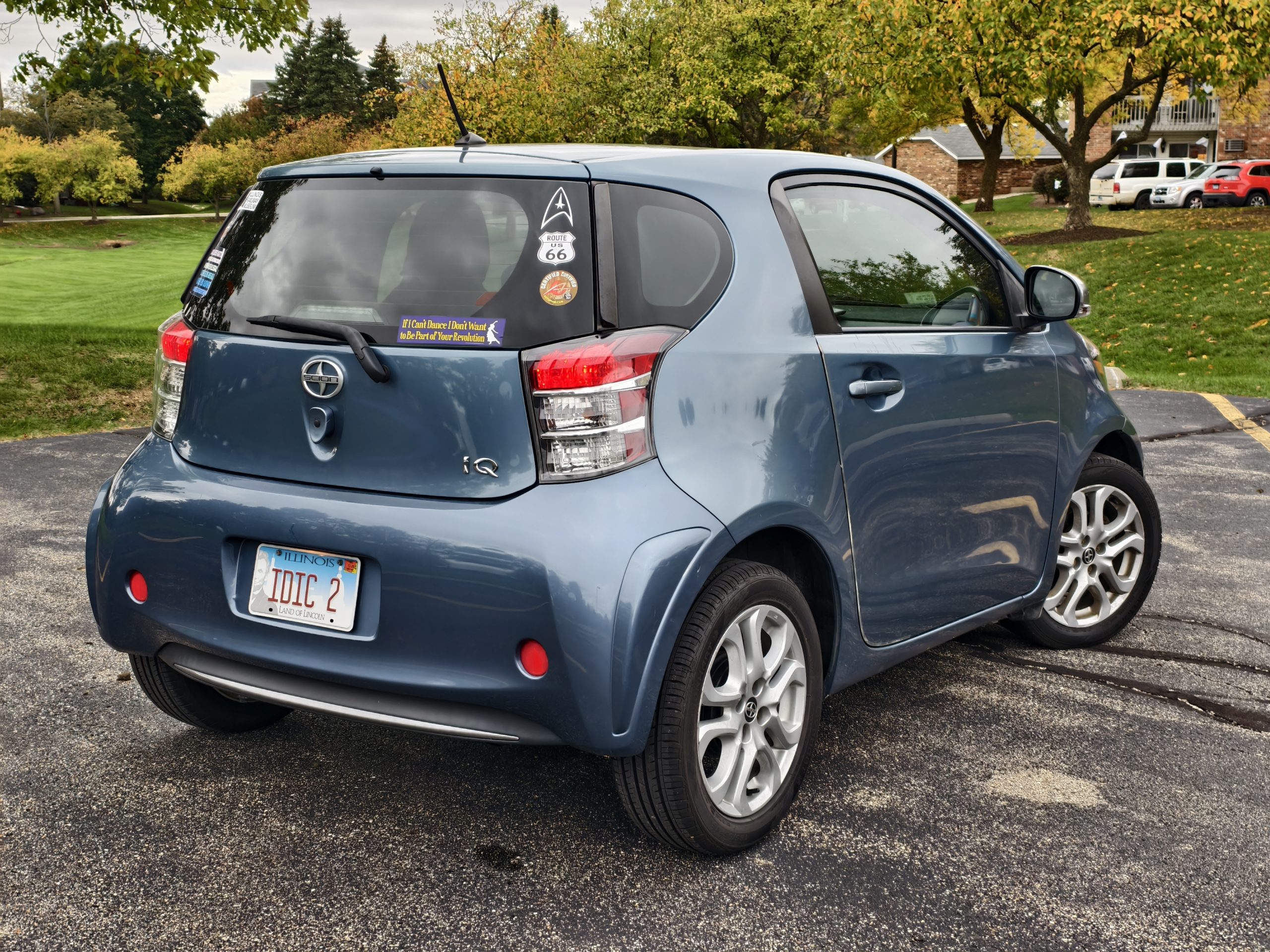
The Scion iQ was supposed to be the best of all worlds. It’s a weird car like my Smarts, but with Toyota reliability! I have seen lots of iQs with more than 250,000 miles on them, too, so I know they’re good for the long haul.
Love At First Drive
Things were great at first. The iQ had all of 67,000 miles on it when we picked it up, and it was a tight car. The steering was sharp and precise, and it went down the highway surprisingly well for a city car. My favorite part was how the iQ needs basically no space at all to perform a U-turn. The stereo was also a big highlight, and reflected Scion’s old attempts to attract younger buyers with bold colors and loud speakers. Sheryl said that she scored 40 mpg without even trying.

Look, I’m such a huge fan of Smart that I used to own six Fortwos, and even I have to admit that Toyota built a better car than a Smart. Unfortunately for Toyota, building a better car didn’t result in better sales.
Perhaps the biggest test of Sheryl’s iQ was when, in early 2024, we drove the car basically across America along the old path of Route 66. That little car felt like it had conquered America, the Rockies, and all, even though it was really built to rule the confines of New York City or Chicago. We’ve driven this car as far west as the Grand Canyon and as far east as Asheville, North Carolina. The car’s Carfax suggests that, in the hands of previous owners, it’s been even further east.

The iQ has also survived one heck of a beating in our fleet. The car has taken on a full truck tire “gator,” been involved in two minor crashes, and, of course, about 56,000 miles of hard driving. Thankfully, Sheryl’s driving has reduced to about 30,000 miles a year, but that’s still a lot, especially for a car that was never designed to race down the American autobahn. Yet, the iQ has taken the hits in stride, mostly.
After our Route 66 trip, we identified the worst problems with the iQ, namely, the car’s seats, which had about the same long-term comfort as transit bus seats, and the cruise control, or, specifically, the lack of it. Since the iQ has a wee 1.3-liter four with 94 HP on tap and a CVT, you’re usually giving the pedal some push to keep it at typically American highway speeds. That gets tiring on a super long road trip, as the iQ doesn’t have cruise control.

Thankfully, the aftermarket has long solved this problem, and we had a cruise control installed. At least in the Scion iQ, there’s a plug-and-play harness, but also wiring that needs to be tapped into an existing harness. The cruise control cost $800, of which $315 was for the unit.
The Car Bricked Itself A Year Ago
Sheryl then drove 15,000 to 20,000 miles before an insane failure happened. From my previous post:
Every once in a while, the car randomly went into limp mode after misfiring. The check engine light flashed, the car lost power, and slowed down to a crawl. Thankfully, restarting the vehicle restored all functions. The issue didn’t happen again until October. Then, out of nowhere, the issue came back and it appeared both frequently and seemingly entirely at random.
I pulled the codes and found myself baffled. The vehicle recorded a misfire on every cylinder but also a P2121 “Throttle/Pedal Position Sensor/Switch Circuit Range/Performance” code. The vehicle has fresh, name-brand plugs and excellent compression on every cylinder. I couldn’t find any obvious reason for a supposed total engine misfire. Even the car’s battery tested healthy. Eventually, the reported misfires disappeared, so I’m not entirely sure what’s going on there.

What didn’t disappear was the flashing check engine light and limp mode condition. It seemed as if at least once a week Sheryl would report the car going into limp mode with the P2121 code being thrown during the event. Then, this hit a fever pitch. One day, Sheryl left a southern Illinois courthouse to find someone actively slashing her tires. She scared off the guy before the tool went through the tire. But then something truly confusing happened during her five-hour drive home that made us think the vandal did something else. A few minutes after she entered the highway, the engine’s revs shot to redline. She didn’t change her pressure on the pedal. Instead, it seemed the car was trying to accelerate entirely on its own. Thankfully, the car entered into a safe mode where it wouldn’t travel faster than about 10 mph while the engine was seemingly running away.
Eventually, Sheryl was able to limp the car off the highway at 10 mph while the engine redlined. She let the car sit for 30 minutes, and then the vehicle allowed her to drive the five hours or so home without incident.
Once the car got home, I was able to replicate her issue, and it was shocking. A light would turn green, I would hit the gas, and the engine would bang off the rev limiter, but without any movement from the car. Or, alternatively, I’d hit the gas and nothing would happen. The car just sat as if I didn’t have the pedal welded to the floor. If I were lucky, the car merely went into limp mode and I had a top speed of 45 mph. Sometimes, the car could be cruising at 60 mph, and suddenly, the pedal would stop working.

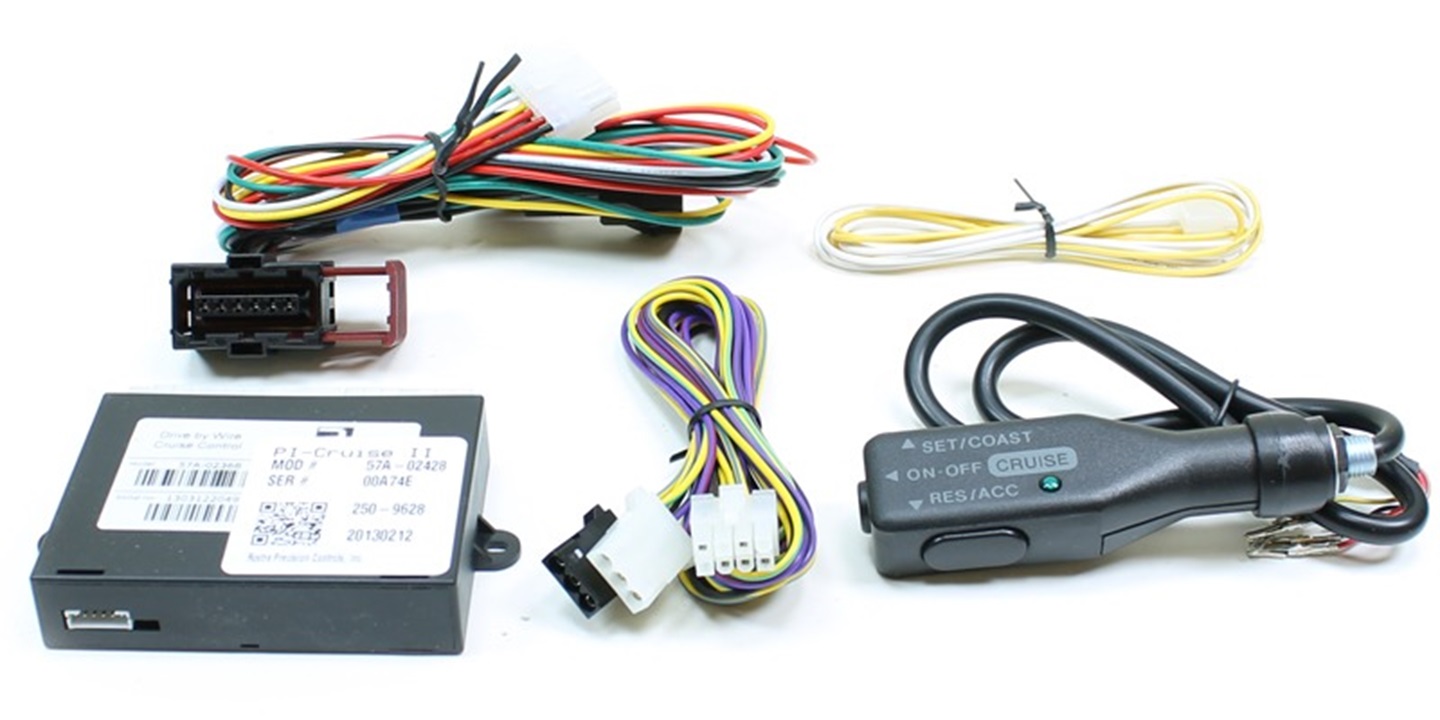
I had a theory as to what happened here. About once a month or so, a Smart owner comes into a forum or group and complains that their gas pedal mysteriously no longer works. Back in my IT days, I learned that a great way to troubleshoot is to uninstall modifications first, and then start with a stock system. So, that was the advice I gave those people. I noticed that nearly all of the people who had pedal issues in their Smarts also had aftermarket cruise control systems. I’d have them disconnect their cruise controls, and in an instant, their gas pedals began working again.
As it turned out, some aftermarket cruise controls in Smarts have substandard soldering, and when the soldering goes, the gas pedal gets bad signals. This is because the cruise control routes directly through the digital pedal, so bad signals coming from the cruise control go into the pedal.

It sounds like there might be a similar issue that can happen with aftermarket cruise controls in Toyotas, too. At any rate, the cruise control had a warranty, so Sheryl had the dealer investigate. Here’s what was found:
A couple of techs at the local Toyota dealer worked through the weekend to replicate and troubleshoot the problem. The limp mode issue never showed up for them.
However, the tech who installed the cruise control found a bunch of fault codes stored in the cruise control unit itself plus that persistent P2121 from the car. Their diagnosis? The cruise control is having a failure of some kind, which sends bad signals to the accelerator pedal sensor. As for the P2121, it was found that the pedal sensor was also failing. The consensus is that the cruise control failure damaged the accelerator pedal sensor.

Unfortunately, the cruise control warranty covered only the unit itself. Since Toyota does not sell the accelerator pedal sensor itself, you have to replace the entire gas pedal. We ended up paying out of pocket to replace the pedal. It stung, but Sheryl got her car back with a shiny new pedal that actually worked better than the car’s original one.
The dealership then had us drive the car for a month with the cruise control disconnected to see if anything happened. The car drove just great, so the dealer decided to replace the bad cruise control with a new one. Finally, I thought, it was all over.
Here We Go Again

That was back in December 2024. It is now October, roughly 10 months and about 25,000 miles or so later. Sheryl has been telling me that her car is broken again. This time, the car has new and exciting issues for us.
The first is that our old friend P2122 came back. This time, the error manifests itself in a weird way. In most instances, we hit the gas and nothing happens. But as a twist, restarting the car doesn’t fix it, and hitting the gas after a restart results in the same non-movement. Sometimes, we have to restart the car two or three times before the pedal begins working again.
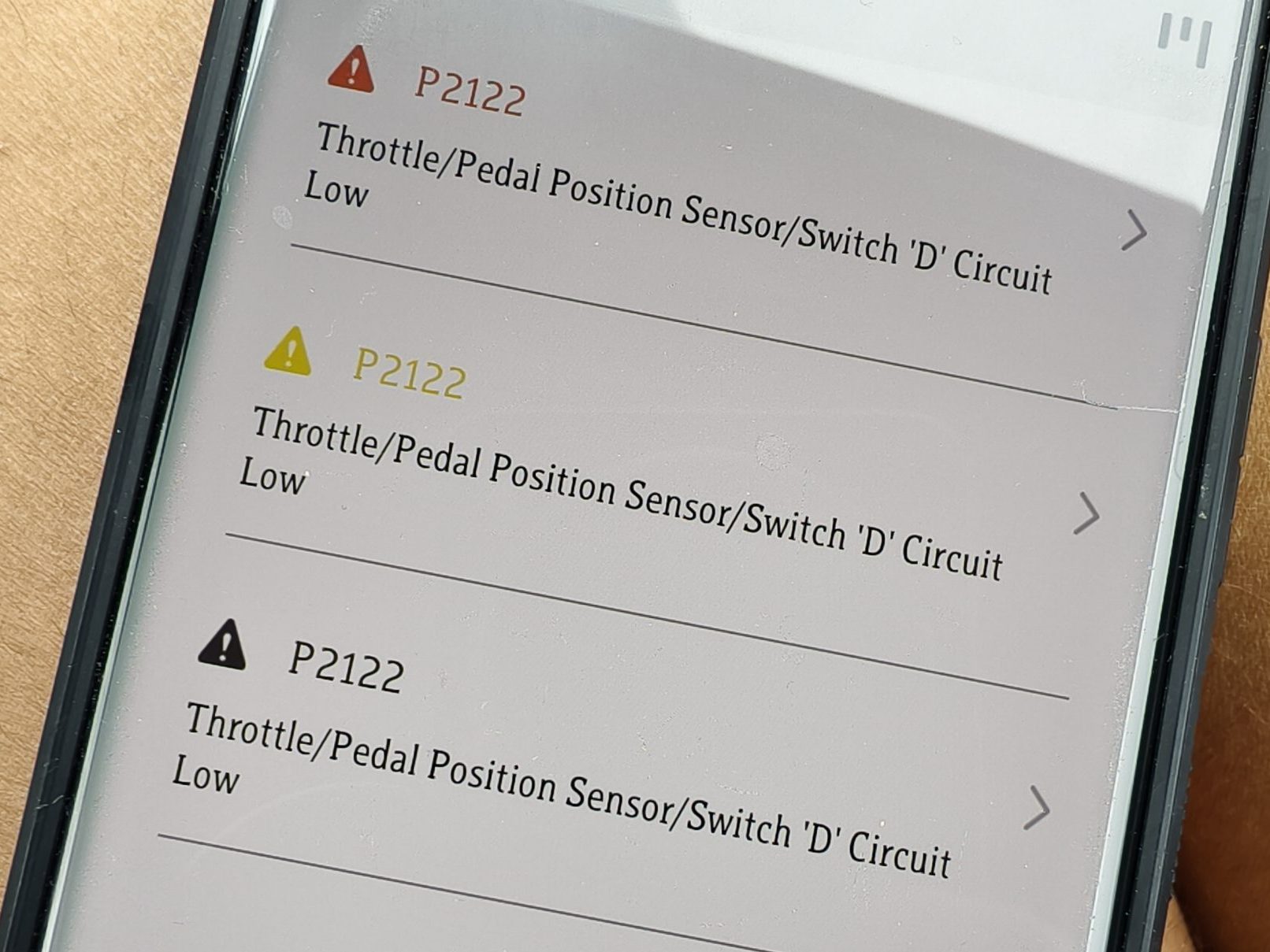
The other issue is that, at least once a day, as soon as I hit the gas, the engine sputters, stalls, and shuts down. Restarting the car sometimes results in it immediately sputtering and shutting down again. This issue is always accompanied by the pedal not working. If the pedal is working, the car isn’t stalling. Annoyingly, the car is not producing any engine codes when this happens. I don’t even find any “secret” codes with my fancy Autel scanner. Just the frustrating P2122.
There are two more issues, too. The CVT emits a concerning whine, and, when idle, I can feel a slight miss in the engine. Some of this is explainable. The car has 123,000 miles now, and according to the service records I could find, the car has its original spark plugs. I bet the slight miss will be solved with a spark plug change. That should also fix the problem we’ve been having with the car scoring only 23 mpg recently.
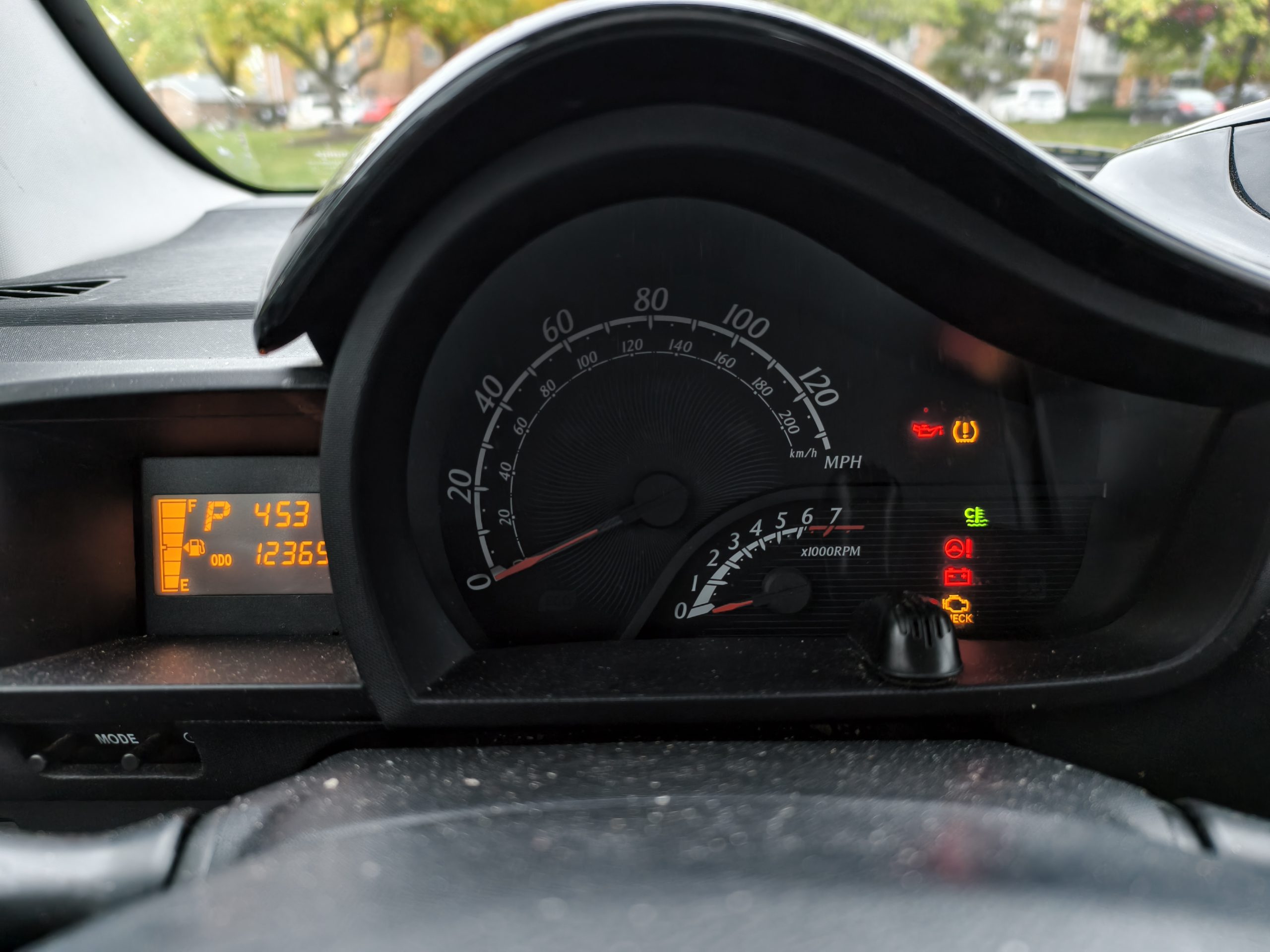
The rest of the issues are leaving me scratching my head. This time around, the dealership is unsure if the cruise control is a cause of the issue or just a symptom of it. At any rate, their solution is to just replace the pedal and the cruise control again. I don’t like this resolution, because that’s what didn’t work last time, and there’s no guarantee it’ll work this time. The pedal is a $200 part, and it’s insane that we’ve now lost two pedals in the span of just 10 months.
But I’m not really sure what to do about this. I’m not entirely sure how to troubleshoot this outside of just deleting the cruise control entirely, replacing the pedal again, and hoping we don’t end up right back here 10 months from now. But Sheryl loves the cruise control, and will hate staring at a dead cruise control stick, knowing she spent $800 on a pile of crap that she can’t use.
I feel like there are three possibilities here. Either the new cruise control encountered an error and killed the pedal again, or the pedal is dying because of some other issue with the car, or there’s some issue within the pedal part itself. Worse, since it takes 20,000 or more miles for the pedal to die, replicating it isn’t easy.
Solutions?
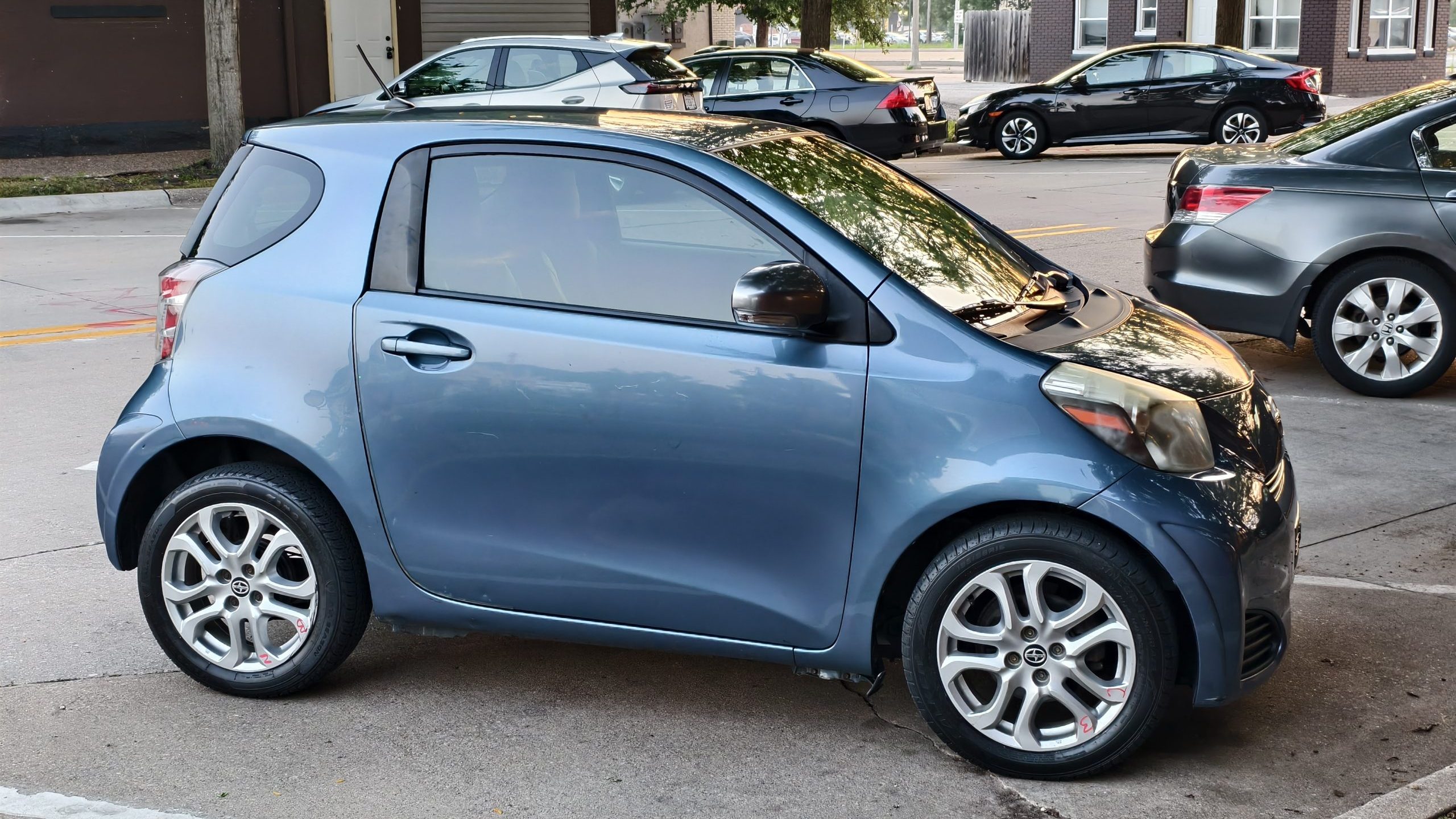
At the very least, I have a temporary solution. There’s no way around it; the current pedal is trash. So I’ll buy another one. Only two bolts hold it on, so I’ll install it myself. This time, instead of having the dealer replace the cruise, we’ll just disconnect it. We also called up an independent Toyota mechanic just to get a second opinion on what’s going on here.
Replacing the spark plugs is a bigger job than it should be. To get to the spark plugs, you have to remove the windshield wipers, the cowling, the airbox, and move around the rubber hoses. It’s a royal pain, and that’s due to the really tight packaging in the engine bay. I’m thinking about replacing the ignition coil packs while I’m in there.
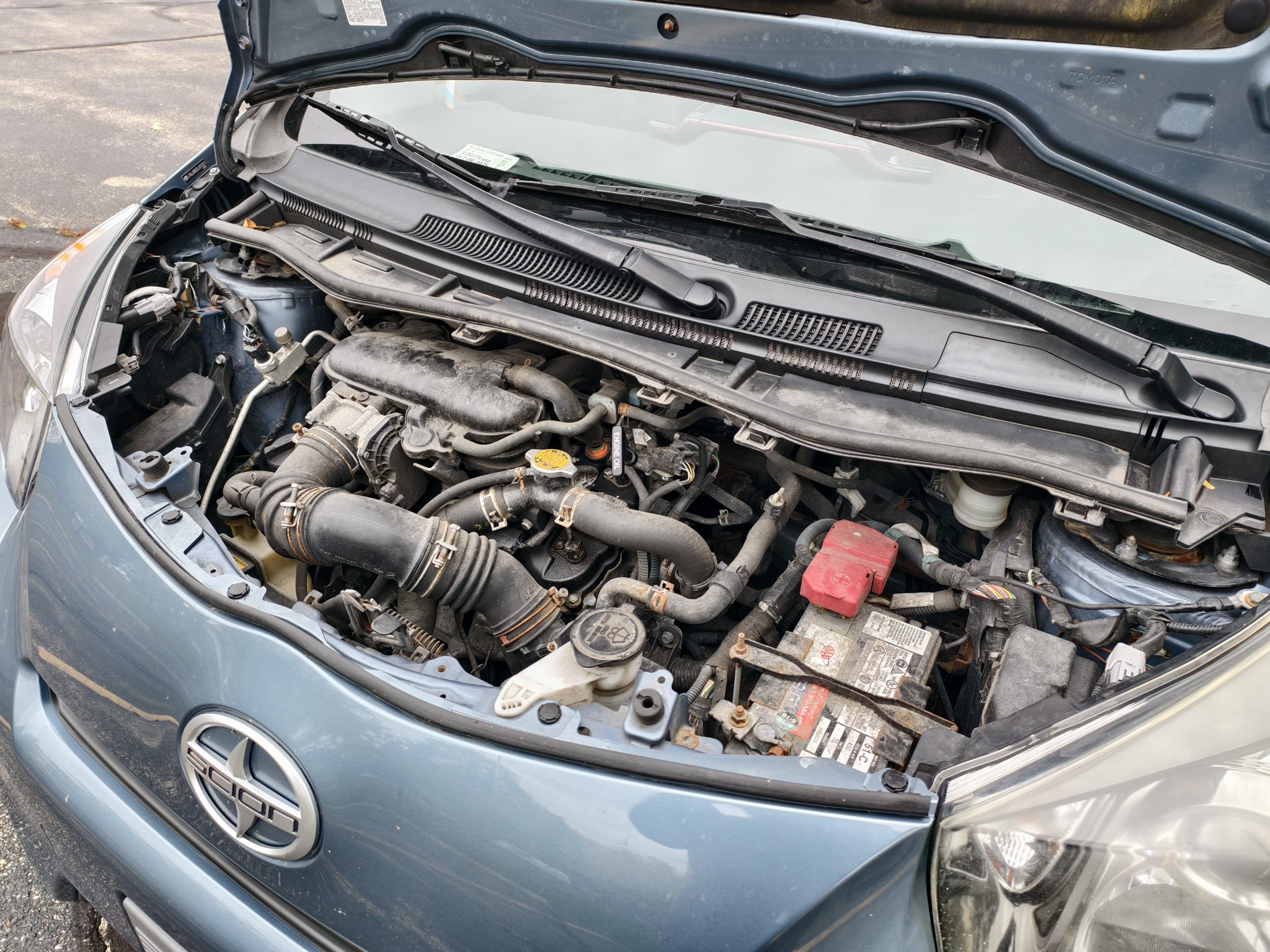
Normally, I would not touch coil packs unless I know they are having issues. However, there are three things on my mind. The first is that these packs have 123,000 miles on them already, and Sheryl beats the crap out of this car. The second is that, if I replace the plugs, button the car back up, and find out the coils are bad, I’m not going to be happy to have to tear it back down again. The third is that, as I stated earlier, Sheryl doesn’t have the luxury of downtime. The car can’t be broken while I’m futzing around with coils and diagnosing issues. So, I’m feeling like I’ll just throw a fresh set of OEM coils in there as peace of mind. In the worst case, the original coils can be spares.
I’m hoping that, between the new plugs, coils, gas pedal, and disconnected cruise, the car will stop bricking itself and go back to being the reliable Toyota that it used to be.
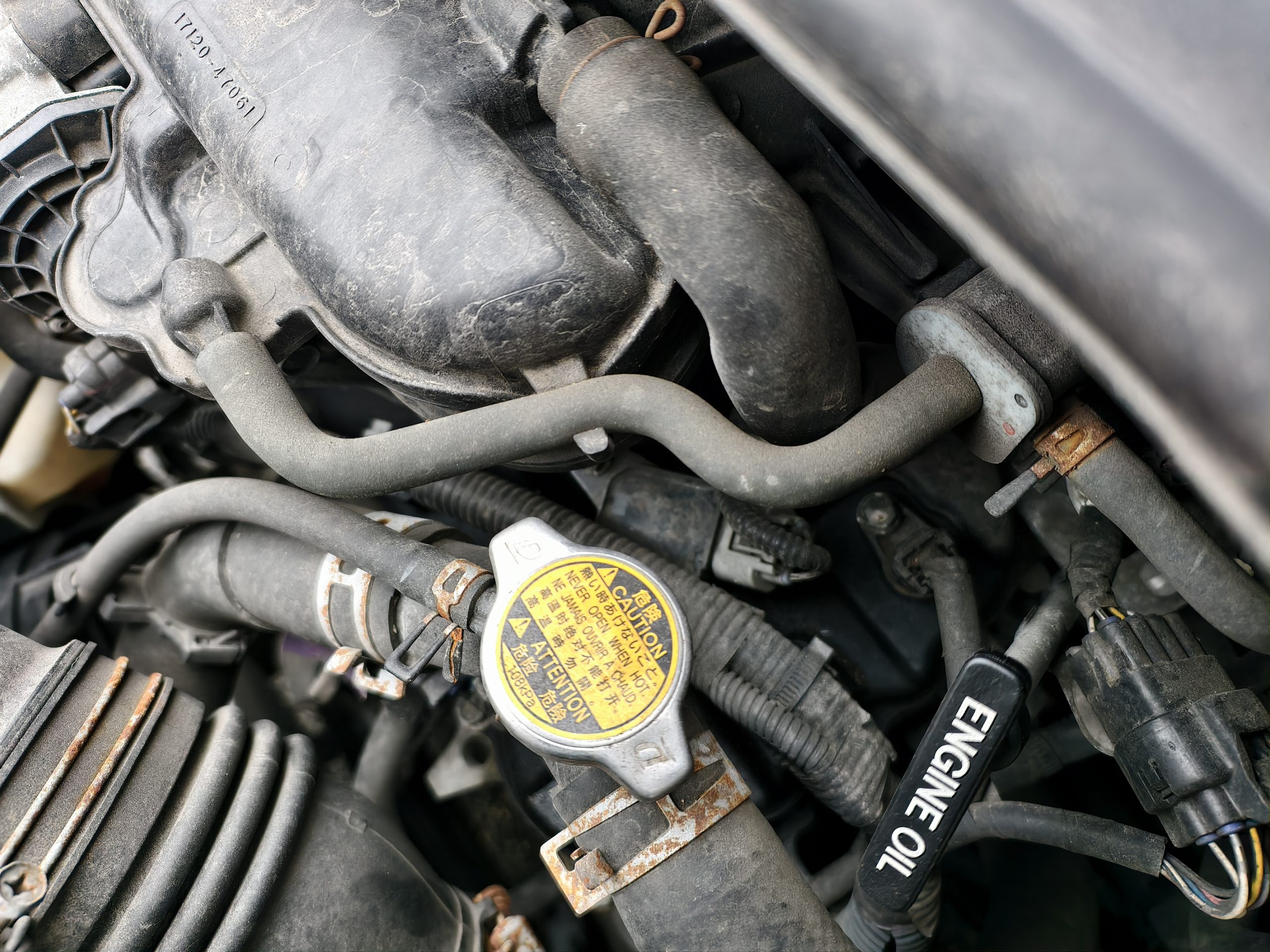
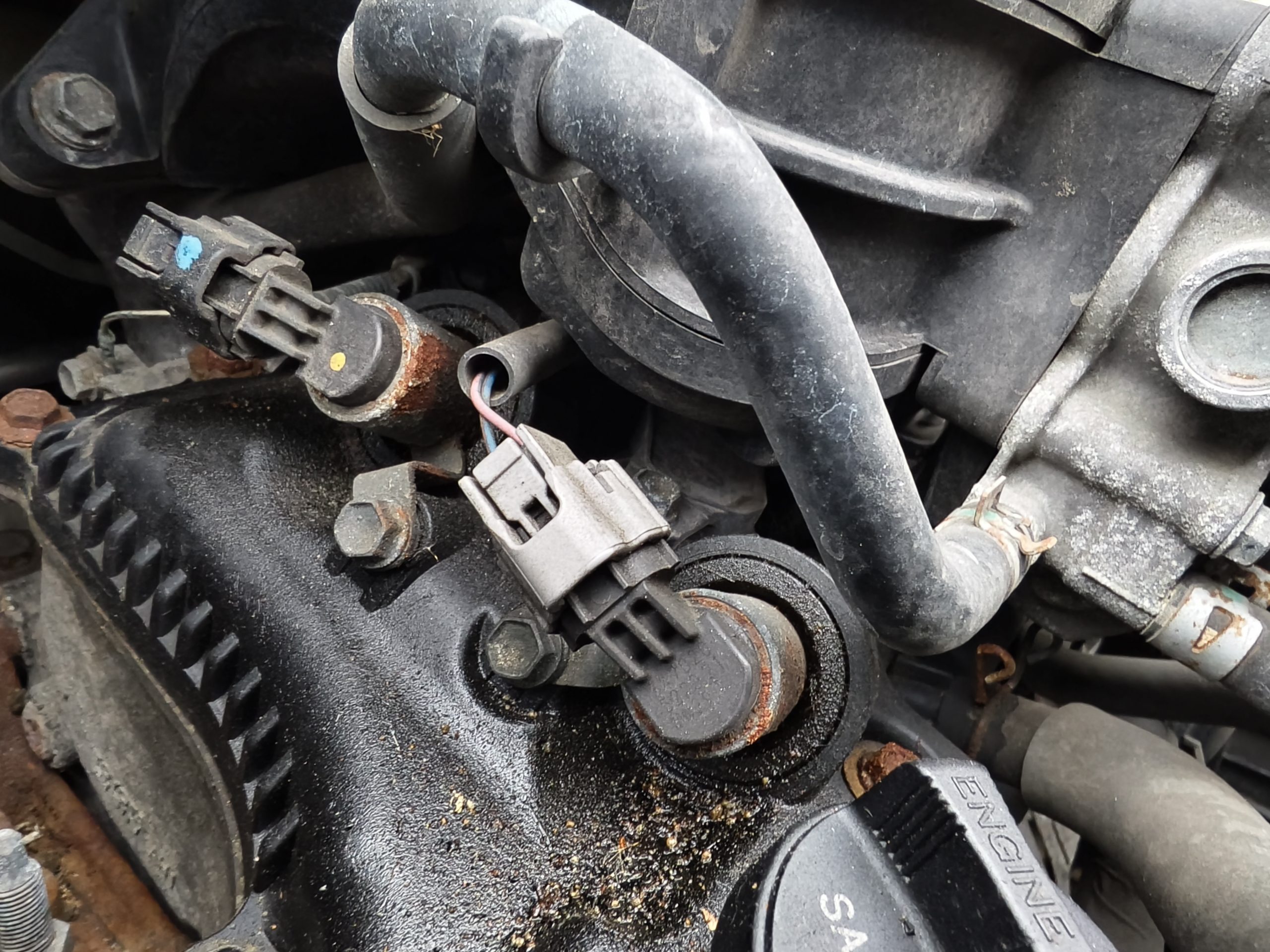
Sadly, I’m not entirely sure what to do about the CVT aside from changing the fluid again. We changed the CVT fluid at 80,000 miles. The transmission has been whisper-quiet until about 5,000 miles ago. Now it’s loud again, just like it was during our Route 66 trip. The dealer says that the transmission will “either whine for the next 150,000 miles or blow up next week.”
At the very least, I have been able to confirm that there are plenty of complaints online about dying gas pedals and CVT whine in Scion and Toyota iQs. That bit is fascinating, but also reassuring. It’s good to know that it’s not just us experiencing these bizarre issues. I suppose it’s also sort of sad. You’d think that drive-by-wire would be so reliable that the idea of pressing the gas and nothing happening would be nearly impossible. Yet, here we are.
Anyway, here’s where I turn things over to you. Am I on the right track here? Am I missing something? Is this darn car haunted? Hopefully, the next time I write an update about this car, it will be a bit happier.









A lot of you seem to be insinuating that I bought her this car and forced her to drive it, and therefore I’m being a dick to my wife. She bought it with her own money. It was her decision to get it. I just made sure that, at the time of purchase, it wasn’t a pile of junk.
She is now considering just getting something boring, but functional, like a Prius.
2nd gen, make sure it has JBL sound option. Fantastic cars.
Neither you nor Sheryl seem like the kind of people that would put up with being “forced” into putting up with anything you didn’t like. And I mean that in the best possible way.
Good.
Yeah. I prefer a funky car but my commute for the last 15 years has been short and I have plenty of project cars to use as backups. I am starting a new job with a 1 hour commute each way so it is time to get something reliable, even if it is boring.
Good to hear re the Prius or similar. I believe the tangential point a lot of us were making is that you’re the car person in the relationship. With the ability to emphatically point out the pros and cons of car decisions. Prius: Pro: Good reputation, economical to run, good gas mileage. Con: Boring to those who value vehicle dynamics (not relevant on 30k+ year freeway slogs), may be noisier on highway due to focus on lightweight construction. If being kept over 200k, may cost more to fix than a regular Corolla that gets good mileage as well.
The Prius gets a lot of flack for poor vehicle dynamics but (at least the 2011 I drove for a while) it’s no worse than any other Toyota outside of their sports cars. The power steering isn’t as overboosted and it has less body roll than most of their other vehicles
Frankly, should she get two, given her milage? Would a dedicated salt season make sense? She’s running enough miles that two cars doesn’t seem stupid.
Will you actually hold on to the Prius this time or loan it to an irresponsible person who will then total it again? 😉
But yes, that’s definitely the right answer. Fuel efficient, dead nuts reliable (except the gen 3 head gasket issue…), and not nearly as awful to drive on the highway as I have to imagine an iQ is.
That was a lesson that cost us thousands to learn the hard way, and I wish I were kidding. Now, whenever someone asks to borrow a car, I just politely decline.
Glad to hear it. I’m super happy people like you and your wife exist and I don’t want to see you get taken advantage of.
Good call. There are companies that specialize in that! And if they don’t want to lend the person a car, then you certainly don’t either.
I think a lot of it comes from a place of genuine advice, but with the way internet commenting tends to go, it’s all too easy for sincerity to be lost in translation, and a well meaning comment misses a few words and comes across as condescending. Don’t let it be a cloud on your day, that’s all I’m sayin’!
What’s the over/under until we get an article regarding 2nd Gen Prius head gasket replacement.
Why was a person trying to slash her tires at the courthouse?
Never mind, found Sheryl’s comment below, at courthouse where either a defendant or plaintiff, sometimes both, will blame the lawyer for the outcome of their previous actions. Good work to represent those who do no have the means to hire an attorney, being charged is not the same as being guilty, hell sometimes being found guilty is not the same as being guilty. Stay smart, stay safe. Hopefully it is legal to carry pepper spray or a taser in the state or states where you practice.
If you are considering a Prius, how about its sibling the Lexus CT?
https://en.wikipedia.org/wiki/Lexus_CT
It’s a Prius in a Lexus suit, with the same engine, hybrid system etc, but a different body and a nicer interior (it almost certainly has cruise control as standard)
Sold in the US between 2011-2017 in far greater numbers than the IQ, so finding a nice one should be easy.
Damn, I’m sorry the discussion got so sour. I know a lot of us were having a good time trying to pitch in for the diag, at least. And definitely I hope nothing I said came off that way. These things said, I think especially for her, fun & funky is a little lower priority than functional. She’s still got access to your vast tiny fleet for more, ahem, exciting driving experiences 😉
By the time I got here the comments were at over 200. I’m sorting through them, so apologies if this has been said already.
Smells electrical to me. New AGM battery and check ALL of the grounding straps and studs, everywhere. Every time I’ve had odd widespread badness like this it’s been corroded/broken/disconnected grounds, or a battery that was bad enough to cause problems but not bad enough to look bad in tests.
What’s a tesler?
Ditch the cruise control, and just plug the harness directly into the pedal. The problem is almost certainly just the cruise control unit.
With my limited knowledge (I only lasted half a semester in electrical engineering), it seems to me that the aftermarket cruise has fried something. It irritates and baffles me that an $800 part meant to interface with a critical vehicle system can fail so spectacularly.
I think it may be time to get a more reliable car – preferably one with adaptive cruise control. I’ve used Toyota’s version on various models, and I’ve been very pleased with it. I do think it’s worth it to remove the aftermarket cruise and perform other maintenance on the Scion, whether you keep it as a city-only car or intend to sell it.
And Sheryl’s license plate is awesome!! ^_^
With old cars, if you’re planning on keeping it until the wheels fall off, then I guess buying extra preventative maintenance and parts are worth it. If not, just fix the dang thing with as little as possible and plan to sell it.
If replacing the iQ becomes a possibility…
Did the Prius C come with cruise? That would give quirky small car vibes, is not a boring regular Prius/Corolla/Avalon, and would provide good reliability and such.
I don’t want to tell anyone how to run their life, Mercedes, but if it were me, and my wife was putting 30k+ miles on a car each year, this would not even be a question. We would get rid of that car and buy a new one. Today.
With the amount of miles your wife puts on her car, I think it’s time to upgrade to an Avalon. I’ve got one 20 years old with 265k on it. Other than going through like 5 gas caps (get the O’Reilly one, the AutoZone ones have crap gaskets), everything else has just been maintenance and wear items. It still gets 30 mpg on the highway, and the butt coolers still work. I have a 60 mile round trip commute, and that thing eats up the miles.
P.S. keep the iQ for when she has to go downtown.
That IS a tight engine compartment! I’d get it sellable and move on to something else. But that’s just me. And I haven’t been in that position since 1994.
Funny, the Sienna (at least Gen 2) requires the same disassembly for the rear bank. But hey, once every 100k miles isn’t much of a price to pay and it’s all simple bolt removal.
With all the comments mentioning Prius, what about the Lexus CT200h?
It’s a Toyota Prius dressed up like a Lexus
It’s sure to have cruise control
It’s bound to be more comfortable
It’s a bit odd and rare, thus a bit interesting in some ways.
Mercedes and Sheryl: You two are fantastic and I hope you find an economical solution. The person who suggested the tax write off was smart. Use the tax system in your favor if you can. Sometimes spending some $$$ for a good tax setup can save you $$,$$$ in the end. Perhaps a B-corp status or LLC?
Shhh, I was hoping to pick one of those up on the cheap some day.
Some of them are nearing 20 years old. I’d strike soon.
Regarding the transmission whine: does this car have a trans dipstick to check the fluid level? It may be low, or just at the edge of ‘too low’.. could be that the fluid is frothing and developing air bubbles, which can cause a whine that sounds surprisingly like gear noise. The place that replaced it might not have filled it properly. As I’m sure you know, if it has a trans dipstick, you need to check it under the correct conditions (at a certain fluid temp and at idle usually but need to know for this particular car).
I don’t understand why anybody ever uses cruise control. If the solution is to remove it, then that’s what I’d do and let my right foot work to make sure I don’t fall asleep or move my unused foot too far from the brake pedal.
That said, a Prius may be a good option.
Cruise control has probably saved me from a few speeding tickets. That’s why I use it. Interestingly, when engaged, it will downshift the (automatic) transmission while descending 6% grades and keep the speed in check with engine braking. Which is something I can’t do manually in this car.
And when I’ve used U-Haul vans to move stuff cross country, I hate its absence.
How hard is it to understand? There’s no good reason to unnecessarily wear your foot out on a long trip or even a daily commute. Mine’s 30 miles each way, half interstate and half 4-lane divided highway, with little traffic and few stops. Cruise is a no-brainer.
If you’re that concerned about falling asleep, perhaps you should get more rest.
I guess cruise control vs foot feels like automatic vs manual transmission to me. Why would you shift when the gearbox can do it for you?
Different strokes.
No, those are two completely different things. Different strokes, indeed, but claiming you can’t understand why anyone would ever want to use it is nutty.
I like driving a manual and would happily do so, but I completely understand why someone would not…leg/foot problems, godawful traffic, just don’t want to.
I drove my ‘90 Pontiac Sunbird from my home on the Ohio River shore in northwestern Kentucky to Detroit, Michigan in September 2024 for RADwood.
That 8+ hours of interstate and side-highway flogging had my right leg and foot CRYING by the time I got to the hotel in Detroit.
I have thought about having aftermarket cruise installed on the ‘Bird in the past. Big nope after reading about Mercedes’ and Sheryl’s problems here.
Not only does the cruise help avoid speeding and fatigue on long trips, I’ve noticed a slight improvement in fuel economy (probably related to the lack of speeding). There are plenty of other things for me to observe when I’m not constantly checking my speed or trying to relieve a cramping leg.
I usually drive manual cars, so cruise control seems a bit unnecessary.
When we had a loaner Sienna (automatic) while the FR-S was in the shop, I caught myself doing 80mph in a 45. I was not trying to speed. Paid close attention to the speedo until we turned that in. I notice that my speed can creep in my Ioniq 5, and I tend to use CC in that more than I’ve used it in any other car.
I just switched jobs and use CC often on my commute. Mostly on one road that passes through many towns and speed limits vary from 50mph to 25mph in places, with stopping speeders being the most exciting thing in town for two of those towns.
I don’t really use it on the interstate in any car, unless it’s late at night and I’m the only car on the road.
I don’t understand why anybody doesn’t use cruise control. One of my biggest pet peeves is interstate driving and having that person that passes you then ends up inevitably slowing down and you pass them 2 miles later only for them to slowly or quickly pass you again back and forth or just ride along your side in the other lane.
Have you considered a Fiat 500? It’s small, cute and quirky but sidestep some of your issues. The transmission is a 6 speed automatic rather than a CVT and the cruise control is factory installed. On long drives our 500 Pop will get 40 mpg. On the down side the factory Bluetooth is flaky but nothing a few hundred dollars at Crutchfield and a proxy alignment can’t fix. Other than keeping the correct grade of oil in the Multi-Air brick and replacing spark plugs every 40k the engines are solid and the trunk switch is mostly annoying to fix rather than hard
They already have an unreliable car :p
A buddy of mine was driving a Dart with the turbo version of that motor for his long commute, similar to Cheryl’s.
Engines would last about 120,000 miles before failing.
When it called for the third engine, he gave up and bought a Corolla.
Well you can go old school. You see back before cruise control people also got tired of maintaining a steady pressure on the pedal for long trips. The solution? A proper length wooden dowel. Yes just put it on the pedal and wedge it against something. Voila old school cruise control. No chance of technical gremlins.
I do remember an old adage from psych class. Insanity is doing the same thing and expecting a different outcome. I also will never get another car that had plugs buried someplace obscure under or behind a bunch of stuff. I actually was heavily influenced to dump my Porsche 911 due to the forward spark plugs being nearly, but just barely accessible. You can rate a Porsche by how many MPG it gets or how many Miles Per Plug changes it gets. The only save on them, it was actually easy to drop the engine a bit to retrieve the forward plugs. Now that kind of sounds kind of stupid if you consider it, “Easy to drop the engine,” which you have to do for how many other cars?
It kind of looks like some amount of water has gotten onto the pedal box? I assume the problem lies with the aftermarket cruise control, but if any salty water did work it’s way in there, that would surely cause issues. The Deoxit idea might be worth a squirt.